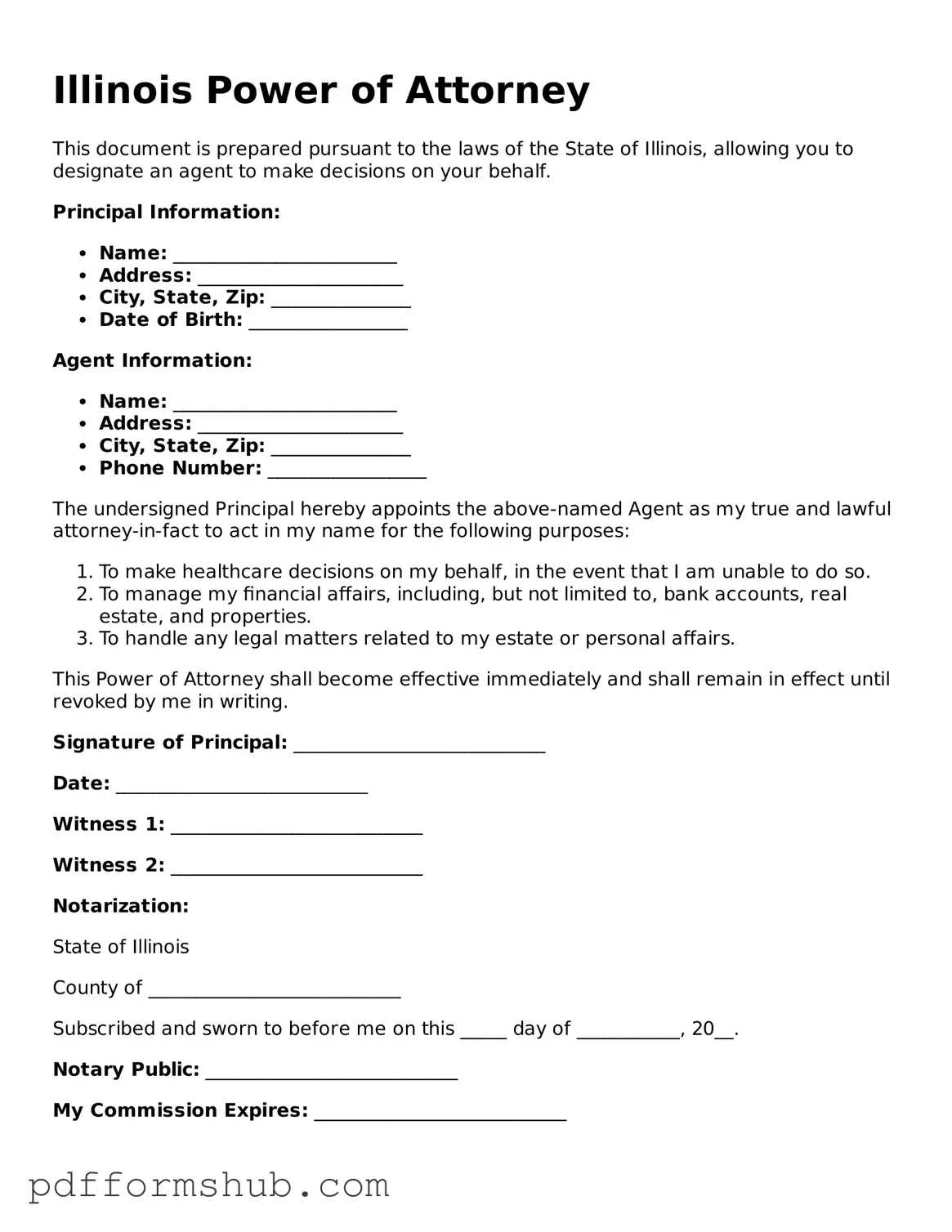Attorney-Verified Power of Attorney Form for Illinois State
The Illinois Power of Attorney form is a legal document that allows one person to grant another the authority to make decisions on their behalf. This form is crucial for individuals who want to ensure their wishes are respected, especially in medical or financial matters. To take the first step in protecting your interests, consider filling out the form by clicking the button below.
Customize Form

Attorney-Verified Power of Attorney Form for Illinois State
Customize Form

Customize Form
or
Free PDF Form
Short deadline? Complete this form now
Complete Power of Attorney online without printing hassles.